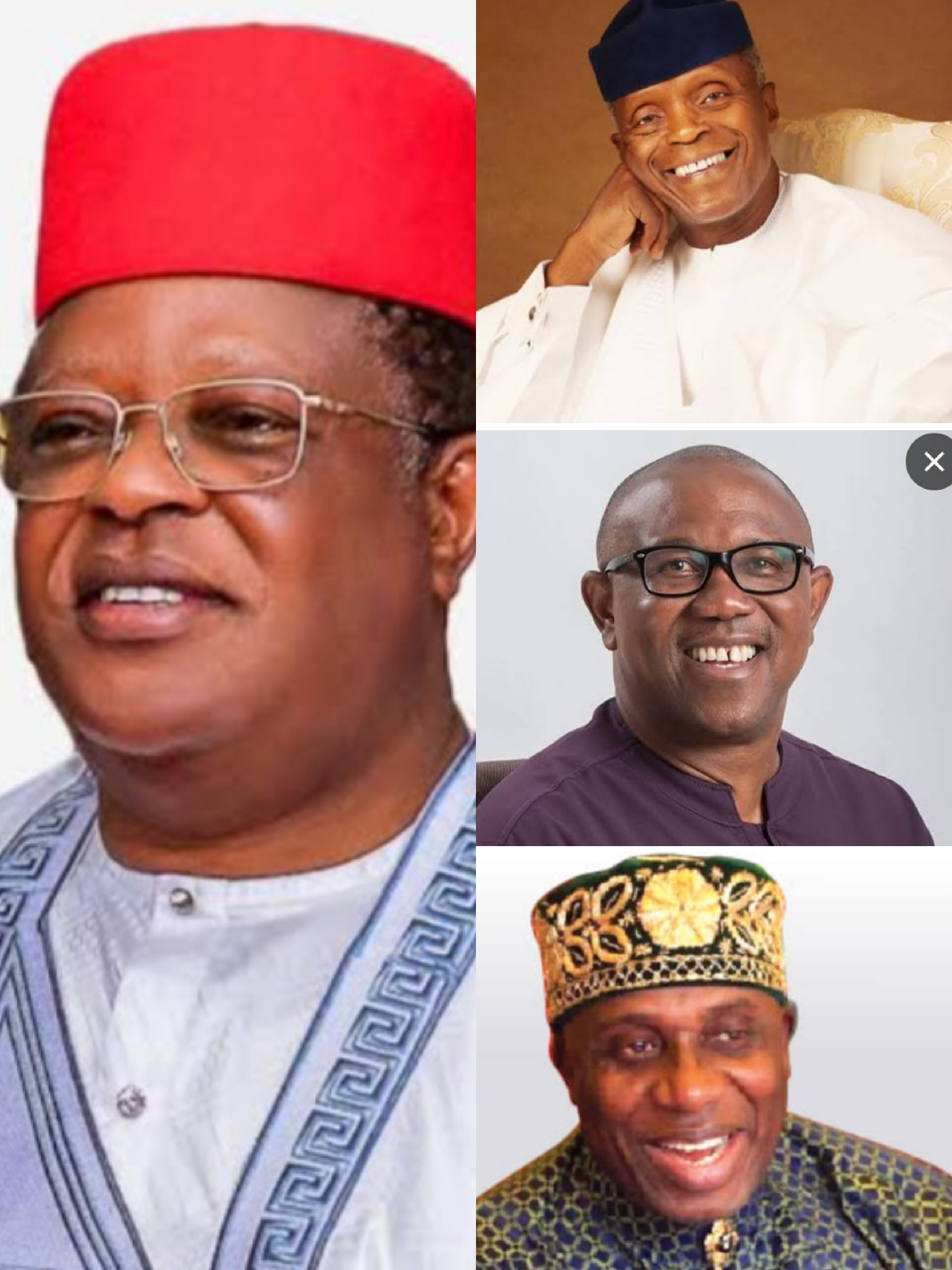By Victor Nwegede
“If I were Tinubu, there’s no way I would contest the presidential election again. If I were Atiku, I wouldn’t even think about it,” said Lawrence Egede, a political analyst.
As Nigeria inches closer to the 2027 general elections, the political climate is already heating up with a swirl of speculations, alliances, and renewed ambitions.
Amid the familiar posturing of political heavyweights, Nigerians particularly the youth are calling louder than ever for a new kind of leadership: one rooted in competence, innovation, and integrity rather than political entitlement and the recycling of aging figures.
Against this backdrop, four names have emerged as credible, progressive alternatives to the status quo: David Umahi, Prof. Yemi Osinbajo, Peter Obi, and Rotimi Amaechi. In contrast to former presidential contenders Bola Ahmed Tinubu and Atiku Abubakar, these leaders represent a shift toward performance-driven governance, national unity, and forward-thinking leadership.
The Nigerian electorate, long battered by economic decline, insecurity, and entrenched corruption, deserves better than a rematch between two long-serving political gladiators whose legacies now appear more self-serving than nation-building.
“If I were Tinubu, there’s no way I would contest the presidential election again. If I were Atiku, I wouldn’t even think about it,” said Lawrence Egede, a political analyst.
“The best thing either of them can do now is to support intelligent, innovative, and productive young leaders from both the North and South," he added.
This sentiment is growing across the country: the era of political monopolies and personality cults is fading. Nigeria must move forward toward a generation of leadership defined not by history, but by the capacity to meet present and future challenges.
David Umahi, currently the Minister of Works and former Governor of Ebonyi State, is widely praised for his transformative infrastructural projects across the Southeast. His reputation for discipline, delivery, and a results-oriented approach makes him a compelling candidate for national leadership.
Prof. Yemi Osinbajo, the former Vice President, exemplifies intellectual rigor and technocratic leadership. Known for his calm demeanor, legal expertise, and vision for economic reforms, Osinbajo is seen by many as a unifying figure who can rise above ethnic and religious divisions.
Peter Obi, the former governor of Anambra State and Labour Party’s 2023 presidential candidate, captivated millions with his message of fiscal prudence, accountability, and youth empowerment. His campaign energized young Nigerians and rekindled a political awareness reminiscent of the June 12 movement.
Rotimi Amaechi, the former Minister of Transportation and ex-Governor of Rivers State, brings extensive experience in infrastructure development and national politics. While occasionally controversial, Amaechi’s deep understanding of Nigeria’s ethno-political landscape and his blunt, pragmatic style appeal to those craving a break from political double-speak.
Together, these four men offer a more credible, competent, and balanced leadership option than the worn-out candidacies of Tinubu and Atiku.
Nigeria is currently in the throes of a socio-economic crisis. In such a time, the country cannot afford to return to a political tug-of-war between aging figures whose past tenures have done little to lift millions out of poverty or restore public confidence.
It’s not about ageism—it’s about vision, capacity, and urgency. Nigeria should not remain a retirement home for yesterday’s politicians. The nation needs leaders who see governance as a sacred trust, not a personal entitlement.
If Tinubu and Atiku truly care about Nigeria, their legacy should not be built on repeated runs for power. Instead, they should mentor the next generation and use their political capital to support credible, younger aspirants with the competence and character to lead Nigeria into a new era.
The 2027 election must mark a decisive shift in Nigeria’s democratic evolution. Nigerians are more politically conscious than ever. The call for a leadership change is not just a social media trend—it’s a national imperative.
In Umahi, Osinbajo, Obi, and Amaechi, Nigeria may finally find the blend of experience, innovation, and integrity required to break free from its cyclical leadership failures. If rotational presidency is to remain a core democratic principle, let it serve a higher purpose—fostering unity, inclusion, and real development, not just recycling power among a few.
The future beckons. It’s time Nigeria chooses wisely.













